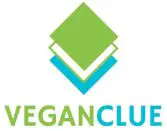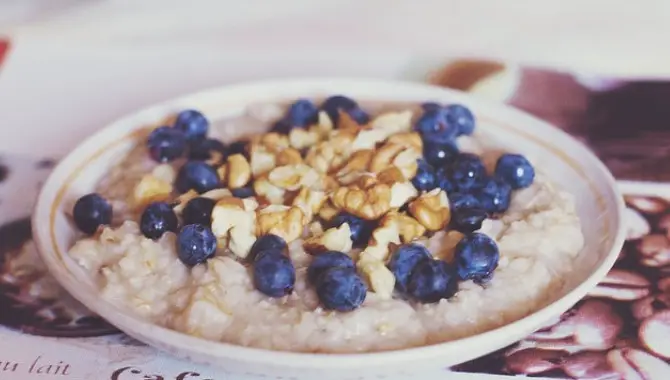As books, documentaries, web articles and other sources continue to provide evidence of the benefits of adopting a vegan diet, the diet itself continues to grow in popularity. People turn to veganism for a whole host of different reasons, from ethical concerns over the treatment of animals to environmental concerns and health concerns linked to the consumption of animal products. However, for anyone new to the vegan diet, it can be difficult to know which foods are permitted and which are off-limits, with oatmeal being one example of a food that causes some confusion.
So is oatmeal vegan? Assuming we are discussing the flour made from oat groats, the answer is ‘yes’. Oatmeal is a product of the common oat; a type of cereal grain. Oatmeal itself is perfectly in-keeping with a vegan diet and is an ingredient in a number of vegan-friendly foods.
Despite this, you may encounter some sources claiming oatmeal is not necessarily vegan and this is a simple language issue. In some parts of the world, ‘oatmeal’ is used to describe oatmeal porridge and it is true that this is not always suitable for those eating a vegan diet. In this article, I will explain what oatmeal is and why it is vegan-friendly in more detail, while also highlighting the potential problems with oatmeal porridge. I will also cover some of the other popular foods made from oatmeal and outline some of the steps you can take to avoid non-vegan products.
What is Oatmeal and Can Vegans Eat It?
First, it is important to understand that, depending on where you are in the world, the word ‘oatmeal’ could have multiple uses. It is frequently used to describe meals that are made using oatmeal as a core ingredient. However, at its most basic level, oatmeal refers to a kind of oat flour, made from the hulled kernels of oat grains – otherwise known as groats. The oats used for oatmeal can be ground, rolled or steel-cut, but regardless of the precise method used, oatmeal can be broadly described as a type of flour, with a coarse or rough texture.
Oatmeal produced using the steel-cut method is sometimes referred to as ‘Irish oatmeal’, while oatmeal made by grinding the oat grains is sometimes said to be made from ‘white oats’. Instant oatmeal is usually rolled, cut into smaller pieces and then pre-cooked, while oatmeal made from larger rolled oats is sometimes called ‘classic oatmeal’. The main difference between instant and classic varieties is the fact that classic oatmeal is not completely flattened.
Crucially, irrespective of the type of oatmeal you buy, or the method that has been used to create the flour, pure oatmeal is completely vegan-friendly. Its sole ingredient is the common oat, which is a cereal grain that is grown from seed. So to be clear, as long as you are talking about the flour, ‘oatmeal’ is perfectly suitable for vegans.
That said, it is possible that you have read articles online, or heard from other vegans that oatmeal may not be suitable. The reason for the confusion is because the word ‘oatmeal’ is often used to describe oatmeal porridge, rather than the oatmeal flour used to actually make that porridge. Essentially, the question of whether or not oatmeal porridge is vegan will depend on what is added to the oatmeal in order to make the porridge.
If you are buying an oatmeal porridge where you are required to add your own liquid, this can usually be made vegan-friendly by replacing the traditional use of cow’s milk with any vegan alternative, such as soy milk, almond milk, coconut milk, or even water. So it is not true that this kind of oatmeal porridge is unsuitable for vegans automatically. However, there are a few other things to be aware of too, such as the use of additives for flavoring.
Honey could be added to oatmeal porridge products, where it functions as a sweetener, while other animal products, such as milk, cream or whey, may be added too. Vegans also need to be careful with certain added vitamins, because some of these may be sourced from animal products, like sheep wool, with vitamin D3 the main example.
There is also a potential problem with the use of sugar, which I will explain in more detail later in this article. Nevertheless, to summarise, pure oatmeal flour is always vegan, while oatmeal porridge and other breakfast cereals can be vegan, but are not always. So how can you actually tell whether or not your cereal is vegan-friendly?
Is My Oatmeal Breakfast Cereal Vegan?
If you are buying an unflavoured oatmeal breakfast cereal, where you are required to add your own liquid, it is highly likely to be vegan-friendly, as long as the liquid you choose to add is not dairy. While many of these oatmeal porridge products may recommend the use of cow’s milk, alternatives like almond milk or coconut milk should work equally well. You should still double-check the ingredients list though, with honey being a key ingredient to watch out for.
The chances of encountering non-vegan oatmeal breakfast cereal increases when you are purchasing certain ‘instant’ oatmeal varieties, as a number of additional additives, may be included, either to flavor the cereal or to make preparation faster. The main examples to watch out for are milk, cream or whey protein, but there may be other problematic additives too, so check the ingredients list carefully and read the allergy information. Despite ‘instant’ varieties being more problematic in general, it is still perfectly possible to find vegan instant oatmeal.
You can make the process of finding vegan oatmeal cereal easier by sticking to brands you already know produce vegan-friendly products, or by seeking out oatmeal cereal products that are specifically labeled as suitable for vegans. If you are unsure about whether or not a product is vegan, you might also consider contacting the brand directly.
Finally, if you are eating an oatmeal cereal in a hotel or restaurant, it is best to ask whether or not it is vegan. The restaurant or hotel may not be able to supply an alternative to cow’s milk, and it is possible that animal products may have been added, so you should not just assume it is compatible with a vegan diet without enquiring.
What About Other Foods Containing Oatmeal?
A number of other food types are made using oatmeal flour and while the oatmeal itself will be suitable for vegans, it is impossible to generalize about the finished product, as all kinds of additional ingredients may have been used, including milk, butter, whey, honey and various non-vegan food additives. With that being said, it is possible to provide some basic advice about whether certain food products tend to be vegan-friendly or not.
For example, gruel can be made using oatmeal and its most basic form involves boiling the oats in water. Yet, milk is commonly used, either in addition to water, or in place of the water, and this would make it unsuitable for vegans. Similarly, brose is a food type that shares similarities with porridge, but it typically contains milk and butter.
Traditional Scottish oatcakes are usually compatible with a vegan diet, as they consist of oatmeal, salt and water. However, it is essential to read the ingredients list, as some optional additives could cause problems for vegans. Oatmeal cookies, on the other hand, are usually not suitable for vegans, because eggs are used in the majority of recipes. Of course, if you are making them at home, you can substitute egg for a vegan egg replacer.
In most cases, oatmeal flapjacks or cereal bars will not be suitable for vegans, unless they have been specifically made using vegan-friendly alternatives to the core ingredients, or unless you make them yourself at home. It is typical for a standard flapjack or cereal bar sold in shops to contain a number of different animal products, including butter, milk and/or honey. Vegan alternatives will usually be clearly marketed as vegan flapjacks or vegan snack bars.
The most crucial advice is to always check the label, and if you are still unsure, it is better safe than sorry.
The Use of Sugar in Oatmeal-Based Foods
One last potential issue related to oatmeal and veganism is the use of sugar within oatmeal food products. First, I should point out that sugar is generally considered to be vegan by most standards. However, some of the strictest vegans try to avoid the use of any sugar that they cannot trace to a particular manufacturer.
The issue with sugar, when it comes to whether or not it is vegan-friendly, is the potential use of bone char during the filtering process. The main purpose of the bone char is to strip colour from the sugar, which is why its use is most commonly associated with white sugar. The bones used tend to be imported from countries like Afghanistan and although they are supposed to be sourced from animals that died from natural causes, this is impossible to check.
It is important to state that many sugar brands actively avoid the use of bone char. However, the problem is that sugar in food products is often sourced from multiple different manufacturers and this can make it almost impossible to know whether bone char has been used at any point, unless the brand specifically addresses this issue.
Most vegans do not avoid the use of sugar, although they may try to take reasonable steps to avoid sugar made using bone char – at least if and when it is feasible to do so. Others feel that it is simply impractical to take a stand on the issue, given the difficulty in knowing where sugar has been sourced from and how it was filtered. Sugar is considered vegan by most people, so whether or not you choose to take a stand on this issue is likely to depend on your reasoning on why to become vegan in the first place, as well as other factors, like the amount of sugar you consume.
Welcome to VeganClue - My name is Robert Van De Ville and together with my team we spent hundreds of hours researching the most relevant topics for Vegans and non yet Vegans. Are you looking for more information about Veganism, animal welfare, diet, health, and environmental benefits of the Vegan lifestyle? You are in the right place! Enjoy the site.

